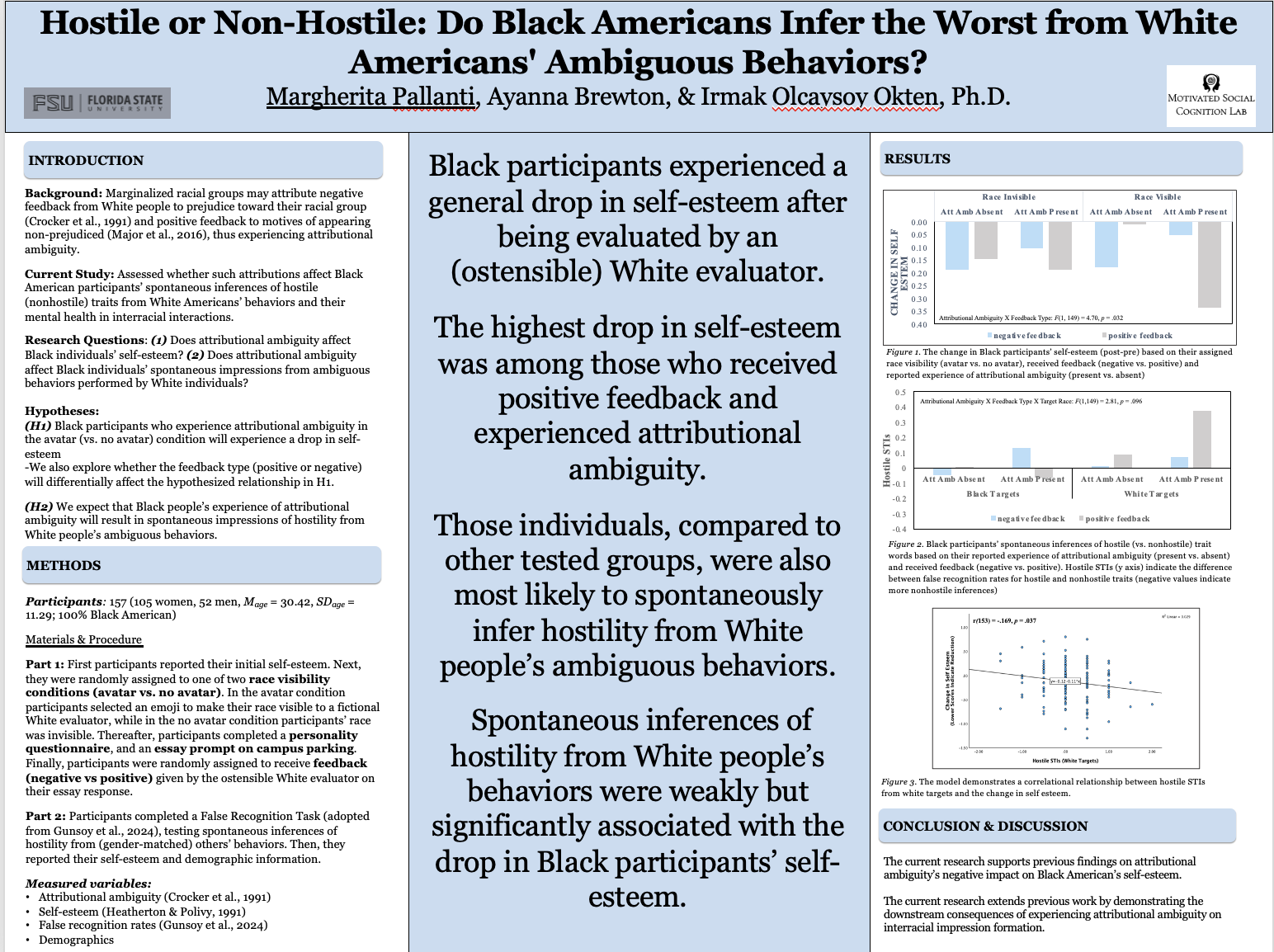Research Symposium
25th annual Undergraduate Research Symposium, April 1, 2025
Margherita Pallanti Poster Session 4: 3:00 pm - 4:00 pm/ Poster #151

BIO
Margherita is an international student from Italy in her final semester at Florida State University, where she is pursuing a B.S. in Psychology with a minor in Sociology. She is a research assistant in two psychology labs: the Motivated Social Cognition Lab (Dr. Irmak Olcaysoy Okten) and the Anxiety and Behavioral Health Clinic (Dr. Brad Schmidt). Margherita plans to pursue a Ph.D. in Clinical Psychology to study trauma, resilience, PTG, and interracial interactions. Her ultimate goal is to develop clinically informed, evidence-based interventions to improve the mental health of underrepresented minorities.
Hostile or Non-Hostile: The Impact of Attributional Ambiguity on African Americans’ Spontaneous Impressions and Mental Health
Authors: Margherita Pallanti, Irmak Olcaysoy OktenStudent Major: Psychology
Mentor: Irmak Olcaysoy Okten
Mentor's Department: Psychology Mentor's College: Arts and Sciences Co-Presenters:
Abstract
Marginalized racial groups may attribute negative feedback from White people to prejudice toward their racial group (Crocker et al., 1991) and positive feedback to motives of appearing non-prejudiced (Major et al., 2016). We will assess whether such attributions affect Black people’s spontaneous (unintentional) impressions of White people and their mental health in interracial interactions. We will examine Black participants’ attributions of White people’s negative and positive feedback on an essay they wrote, manipulating the visibility of participants’ race to an ostensible White partner (camera on or off). Then, we will test spontaneous impressions via a false recognition task where participants review White or Black targets’ ambiguous behaviors towards them. We will explore the effect of race visibility on spontaneous impressions, predicting that hostile impressions (e.g., mean vs. playful) from White peoples’ ambiguous behaviors would be most likely in the face of negative feedback when participants’ race is visible (vs. not). We will also explore whether attributional ambiguity will predict participants’ mental health and self-esteem.
Keywords: Interracial interactions, spontaneous impressions, mental health, attributional ambiguity, psychology


